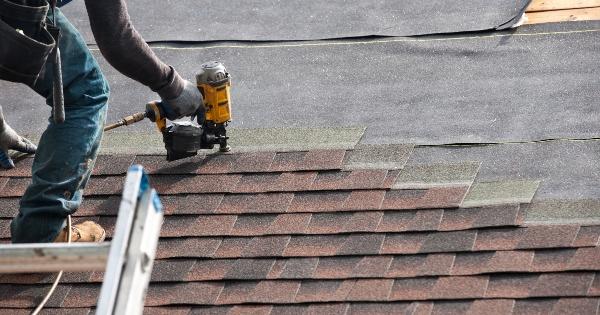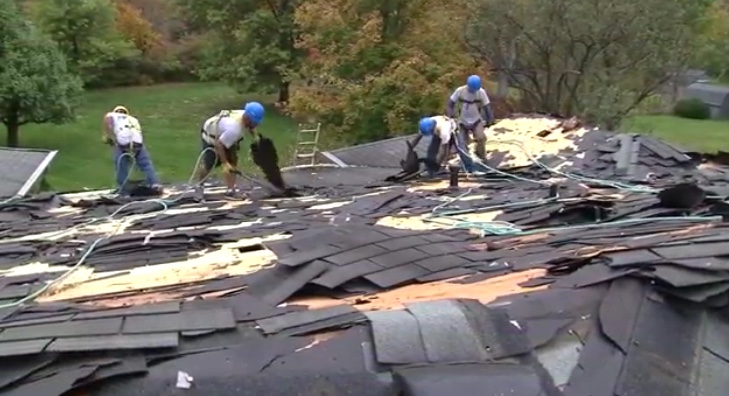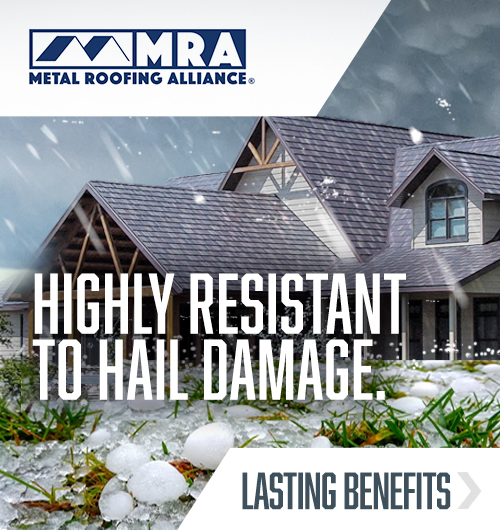5 Steps to Help You Find the Best Roof

By Quarrix.
Here are five key factors to understand the process of buying a new roof.
So, you’re trying to make a once-in-a-lifetime decision on your next roof. That may seem like a pretty tall order, but if you know what you’re looking for, it really isn’t all too daunting. In fact, the process of buying a brand-new roof can be broken down into five easy steps. Learning these crucial five steps will give you the knowhow to make the best decision for your home.
Establishing once in a lifetime
First things first: Is a new roof really a once-in-a-lifetime decision? It can be and it all depends on where you live, the type of roof you choose and how you care for it.
According to U.S. News & World Report, you can expect roofing components like tile, slate or copper roofing to last more than 50 years, while wood shakes can last about 30 years and other varieties may last for 20 to 25. These age ranges naturally depend on weather conditions in your area, the effectiveness of your home ventilation systems and other factors. No matter what you choose, however, you’re still looking at a long-term decision, so let’s move on to the five factors that can help you make that choice properly.
Factor 1 - Do you stay or do you go?
Is your next roof a new version of the one you currently have or something else entirely? That’s the first question you need to answer.
Replacing your current roof with its identical successor naturally means fewer decisions for you but it may not always lead to a best-case scenario. Snow, sleet and even dust — depending on your climate — can all impact your roof’s performance and if your old roof struggled with the elements a change may be wise.
If you do decide to start over with a new roof type entirely, you will have more decisions to make but this is your chance to correct those pesky past problems that you may have experienced with your old roof. Icicles and roof rot, for example, are common byproducts of poor roof ventilation. If you’ve experienced either in the past, a new, properly ventilated roof, can erase these concerns.
Factor 2 - Choose your ventilation wisely
Remember when we said that ventilation was a key factor in determining the overall shelf life of your roof? Here's why.
Moist air, trapped in your home, can rise to your attic, permeating your roofing substrate and causing your roof coverings to warp and buckle. In addition, this air can also lead to the creation of icicles and ice dams during the winter and cause mold to grow on your roof and in your attic. Both can cause long-term damage to your home and, in the case of mold, pose a serious health risk to you and your family.
Proper roofing ventilation eliminates these concerns, but you should know not all solutions are created equal. For example, old-fashioned box vents and gable vents tend to create pockets of trapped air throughout your home. This reduces but doesn't eliminate your problem.
Ridge ventilation, however, is installed in a continuous line at the highest point of your roof to eliminate pockets of air from collecting in trouble areas where they can eventually create ice dams or mold.
You can learn more about ridge ventilation and what it can do for you in this helpful Homeowner’s Guide to Ventilation.
Factor 3 - Reimagining your roof’s aesthetics
Durability and appearance don’t need to be an either/or consideration when installing your new roof. In fact, today’s roofing market offers you more choices than ever before, with most materials available in a wide array of styles. The shape, texture, style and the color of your roofing materials all come into play here and you naturally want to choose a solution that complements the architectural style of your home.
Our advice is to look for a style — or two — that appeals to you and then ask your contractor about your material options. They could be more numerous than you think, and it may be possible for you to purchase a composite material solution that mimics the look of clay, wood or slate without the fading or breakage concerns.
You should also remember that your choice of attic ventilation will play a role in the aesthetics of your roof. If the random placement of box vents across your roof doesn’t appeal to you, you will be more interested in a solution like ridge ventilation. The streamlined design of ridge ventilation supports the overall appearance of your home by maintaining a nearly invisible profile. This allows you get the results you need without the eyesore you don’t.
Factor 4 - Seek professional help
Your contractor obviously plays a vital role in your project so how do you find the right person for your job?
The search may be more difficult than you expect with employment in the industry at an all-time low. Nevertheless, you should still hold out until you find a contractor who can offer you sound advice on the right materials for you, explain the installation process thoroughly and — most importantly — complete your project on time. While reviewing potential candidates, you should check their licensing, insurance, references and online reviews as well as the details of any written contract before proceeding.
It's a big decision and if you have any questions, the National Roofing Contractors Association's resources can help.
Factor 5 - Weighing the warranty
The length of your new roof’s warranty is important, but considerations here go beyond simply attaining as many years as possible. Consumer Reports recommends asking your contractor for a separate warranty to cover labor since most vendors won’t cover faulty installation. Instead, the term “full-roofing warranty” usually only pertains to the replacement of defective products.
You may also come across materials warranties that have a wide range of expiration dates generally running from 10 years all the way to 50 years. In many cases these warranties are non-transferable to new owners. You should also be aware that your roofing warranty may require certain conditions to be in place to maintain the warranty, so always be sure to read your warranty thoroughly and call the manufacturer if you have any questions. Only then will you know exactly what is covered and what isn’t.
Finding your next roofing solution
Your next roof is not an impulse purchase so don’t make the decision quickly. Take your time, review your options and read the fine print. Leave no option unexplored and your reward will be a wonderful new roof you can enjoy every day for as long as you own your home.
Have a question? AskARoofer.
Find your local roofing contractor in the RoofersCoffeeShop® Contractor Directory.
Original article source: Quarrix










Comments
Leave a Reply
Have an account? Login to leave a comment!
Sign In